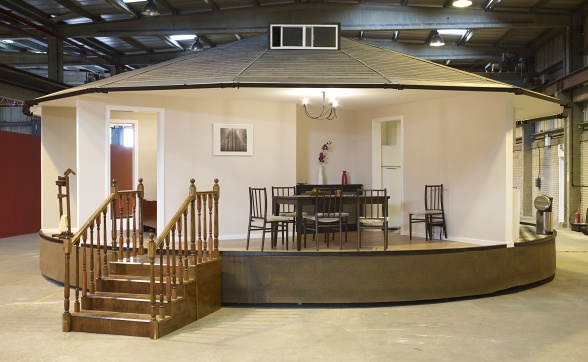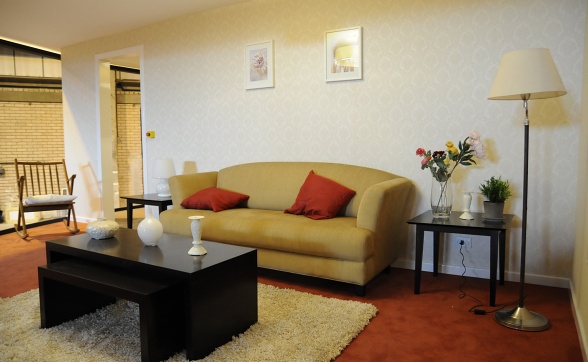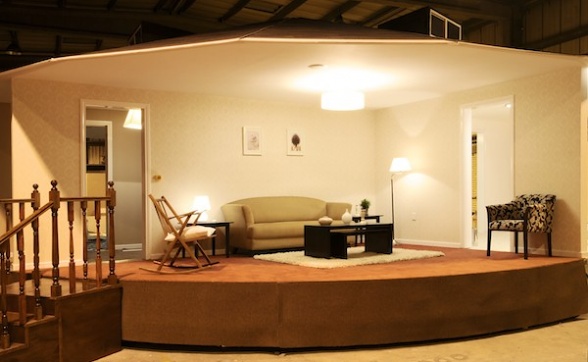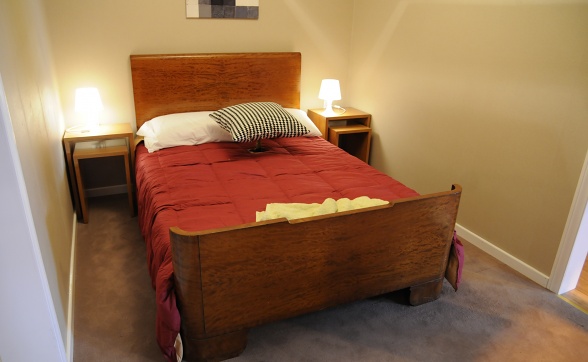Leandro Erlich

Leandro Erlich, Carousel – The task of being in the right place at the right time (installation view), 2008

Leandro Erlich, Carousel – The task of being in the right place at the right time (installation view), 2008

Leandro Erlich, Carousel – The task of being in the right place at the right time (installation view), 2008

Leandro Erlich, Carousel – The task of being in the right place at the right time, (installation view) 2008
Leandro Erlich, Carousel – The task of being in the right place at the right time (installation view), 2008
Leandro Erlich's (b. 1973, Buenos Aires) playful installations challenge our perception of reality. His impeccably constructed architectural scenarios deliberately mix the real with the fictional to tease our sense of perception. Whether building a swimming pool where people can stand underwater (The Swimming Pool, first created for Venice Biennale in 1999; now permanently installed at the 21st Century Museum for Art, Kanazawa, Japan) or transforming the familiar vertical view down a spiralling staircase into a horizontal space which can be walked through (The Staircase 2005), Elrich takes everyday real objects or scenarios and transforms them into fictional experience.
In his work for MADE UP, Carousel – the task of being in the right place at the right time (2008), Erlich mounted a typical one bedroom apartment – complete with bathroom, kitchen and dining area – onto a real time carousel. The work married the architecture of the playground with that of settled domesticity in order to playfully re-enact ‘the daily grind’, capturing us in an endless series of transitions from lobby to kitchen to dining room to bathroom to bedroom to living room to lobby and so on. But the gentle rotation of the carousel also reminded us that despite the constant repetition of our daily routine, as we ‘go through the motions’ no two moments are ever the same.
Erlich’s spinning architecture was a humorous rendering of the ancient Greek philosopher Heraclitus’ famous dilemma: ‘No man can step in the same river twice’. No matter how stable and constant familiar surroundings might seem, neither we nor our environment can remain the same from one moment to the next.
The interaction of the viewer is a key element in all Erlich’s work. His fictions are not to be viewed at one remove, but entered and experienced. In the Glass Shop (2005), for example, Erlich constructed a precise mirror image in real space, allowing visitors to play Alice through the Looking Glass and step through the mirror into the reflection on the other side. From a distance, the sharpest of eyes might register that the vinyl text on the Glass Shop’s window was not reversed in its reflection. But it is really only in stepping through the mirror and physically experiencing that moment of disorientation, that the illusion is fully detected and felt.
Erlich’s Carousel drew on language of the fairground, to remind us that adults as much as children can learn through play. His installation invited us to rediscover our sense of wonder in the everyday, seeking out the shades of difference and newness, and, in the words of Georges Perec, ‘To question that which seems to have ceased forever to astonish us.’
Leandro Erlich at Liverpool Biennial 2008
Carousel – The task of being in the right place at the right time, 2008
Installation
Commissioned by Liverpool Biennial 2008
Exhibited at Pilkingtons, Sparling Street
Supported by
Northwest Regional Development
Agency Bowmer and Kirkland LAGP Architects
Nogueras Blanchard
Sean Kelly Gallery
Liverpool Biennial
55 New Bird Street
Liverpool L1 0BW
- T +44 (0)151 709 7444
- info@biennial.com
Liverpool Biennial is funded by
Founding Supporter
James Moores